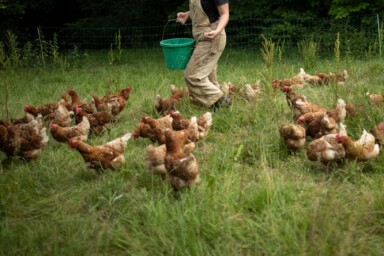Prime Minister Johnson has repeatedly touted the potential of a trade deal with the US. He seems to believe that by pivoting away from Europe, the UK can build a stronger alliance with the US and increase transatlantic trade. He is hoping that his good friend, President Donald Trump, who prides himself on his ability as a ‘dealmaker’, will help smooth the way and get the deal done.
The urgency that Johnson is pursuing in this potential deal is underscored by the number of trips that he and others in his Cabinet have planned in the coming months. Already this summer, the Foreign Secretary, Dominic Raab and Secretary of International Trade, Liz Truss, have visited Washington. Their hope is that increasing US/UK trade will help to mitigate the potential loss of our European exports and imports, which could be even more significant in the case of a no-deal Brexit.
It would seem that the US are similarly keen to establish a new trade deal. President Trump previously told reporters, “We’re working already on a trade agreement. And I think it’ll be a very substantial trade agreement”, and earlier this summer, the President sent his National Security Advisor, John Bolton to the UK to further those conversations. During his visit, Bolton said that the UK was “first-in-line” for a deal with the US and claimed that sector-specific agreements could be approved in order to streamline and speed up the process. This would mean that the US and the UK would (for example) agree a trade agreement on manufacturing, before moving onto an agreement on financial services, progressively moving down the list until all sectors had been covered.
What might an US/UK trade agreement on agriculture look like?
Currently, around 30% of all food consumed in the UK is imported from the EU. In 2016, more than £30.3 billion of Britain’s food imports and £12.3 billion of its food exports were with the EU, totalling almost £1,300 of trade every second. In comparison, US agricultural exports to the United Kingdom totalled £1.65billion in 2018 with the main categories being wine and beer (£216 million) and tree nuts (£163 million). In the opposite direction, the UK exported £682 million of agricultural products to the US in 2018. Leading categories included snack foods (£98 million) and cheese (£49 million).
Part of the reason why trade in agriculture products between the US and the UK has not been higher in the past is the regulatory differences between the US and the EU. Currently, as a member of the EU, there exists significant legal barriers that prohibit specific US food products from entering the UK market. These include the much-hyped chlorinated chicken, hormone-treated beef and GM crops. However, current restrictions also apply to imports of other products including those produced with brominated vegetable oil that is added to citrus drinks as a flavour stabiliser, potassium bromate that is used in bread and azodicarbonamide as a cereal conditioner – all of which have been found to be possible carcinogens.
The EU decided to restrict the sale of these products, and a significant number of other food products and farming methods, on the basis on the ‘Precautionary Principle’ that protects EU consumers by requiring that companies irrevocably prove that no harm will be done. Over the past few decades, the Principle has significantly hindered the ability of producers in the US to sell into an EU market, particularly with regards to GM crops. President Trump acknowledged this (in his own way) when he said: “We were actually impeded by their relationship with the European Union. We were very much impeded on trade. And I think we can do three to four or five times what we’re doing.”
The sentiment that US is being obstructed by the EU’s Precautionary Principle would make it a likely target for post-Brexit trade negotiations. President Trump could use the UK’s weak negotiating position and Boris Johnson’s stated desire for a US/UK deal to demand that the Principle be watered down (or entirely removed) post-Brexit. The goal of the US to compel the UK to drop the Precautionary Principle in favour of a “science-based approach” could see GM crops, hormone-treated beef and acid-washed chicken carcasses enter the UK market unimpeded. The US Trade Representative (USTR) have already published their demands for a US/UK trade deal, which specifically insists on comprehensive market access for US agricultural products. In a document outlining their negotiating objectives, the USTR said specifically that the US wanted the UK to, “Establish a mechanism to remove expeditiously unwarranted barriers that block the export of U.S. food and agricultural products in order to obtain more open, equitable, and reciprocal market access.” Despite public concern, the UK might have little option but to accept the demands laid out by the US – especially if we’re desperate for friends after crashing out on a no-deal Brexit.
The impact of watering down (or removing) the Precautionary Principle to meet the USTR demands would impact both UK consumers and producers. Consumers have been clear that they do not want acid-washed chickens due to the poor animal welfare standards that are associated with it – 68% of UK consumers aren’t comfortable with eating chicken that has been washed with chlorine. Similarly, GM food has long been rejected by UK consumers. However, adopting a new trade deal with lower food safety standards could also see ultra-processed foods flooding the UK market, allowing multinational food companies and fast-food chains to introduce unhealthy products at a low cost. Such was the case in Canada when it signed up to the North American Free Trade Agreement (NAFTA), which resulted in a sharp decline in the price of high fructose corn syrup, which was then incorporated into popular ultra-processed foods, aggravating the obesity epidemic.
UK farmers would also be significantly impacted if a US/UK trade deal lowered food safety standards by removing the Precautionary Principle. Large, industrial US producers are able to produce food cheaply due to the differences in regulation and economies of scale. If transnational food companies are suddenly allowed market access, industrial food could flood the UK without restraint. This could potentially have disastrous consequences for UK farmers who would be substantially undercut on price – a price difference that could be exacerbated by the fact that UK farmers might incur extra cost to produce food to a higher environmental standard following the adoption of a new farming subsidy scheme post-Brexit.
Consequently, the SFT has been advocating that any future US/UK trade deal maintains a level playing field and guarantees the highest food safety standards. We were supporting the amendment to the Agriculture Bill that was tabled by Kerry McCarthy MP (Labour – Bristol East). Her proposal aims to ensure that the UK Government cannot enter into any international trade agreements that allow food to be imported into the UK which does not meet the UK’s standards on food safety, environmental protection and animal welfare. The goal of this amendment is to protect the UK consumer from poor quality imports and to allow UK farming to remain competitive, rather than seeing UK agriculture undercut by foreign food. However, following the prorogation of Parliament this week, the future of the Agriculture Bill is in increasingly uncertain. We will continue to work with MPs from all parties to highlight the importance of maintaining food safety standards in any future trade deal.
Read more on the potential of a US/UK trade deal, here.







